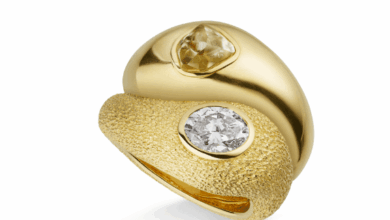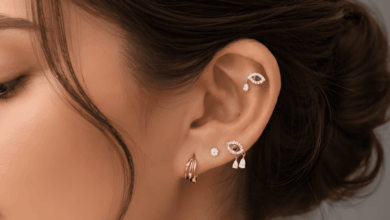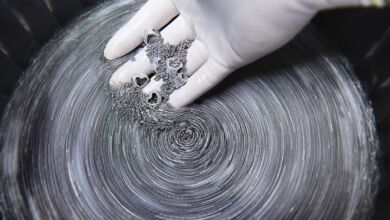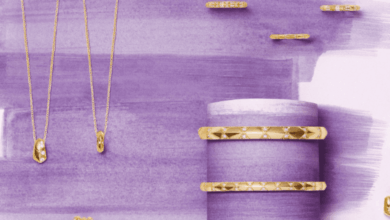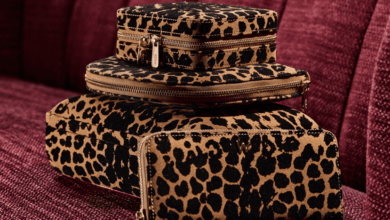Pearl farmers and the climate change fight
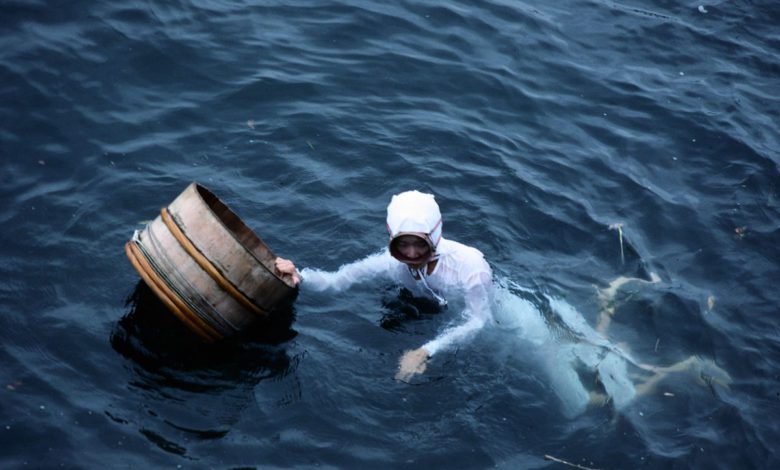
Register to get 1 free article
Reveal the article below by registering for our email newsletter.
Want unlimited access? View Plans
Already have an account? Sign in
As shelter-in-place orders are lifted and clothing, jewellery and other fashion industry companies cautiously head back to work, experts predict the Covid-19 pandemic will convince industry leaders to join the fight on climate change. One CEO hopes a global drop in CO₂ emissions along with the inspiring story of ocean-loving pearl farmers will be catalysts for change.
Just as emergency room doctors have become sources of truth and inspiration in the throes of the Covid-19 pandemic, eco-friendly leaders in the fashion industry believe pearl farmers will have a similar impact on their industry in the ongoing struggle against global warming.
Pearl farmers, who harvest naturally-produced gemstone from oysters in underwater farms, have an uncompromised commitment to protect the environment and ecosystems where they ply their trade.
While companies in jewellery and fashion have adopted rules of sustainability, rules that minimise a company’s carbon footprint, pearl farmers have embraced aggressive “beyond sustainability” policies. When a farmer adopts beyond sustainability rules, they commit to making their local environment a better place to live for wildlife compared with local living conditions before the farm was established.
“The ocean is everything to us.” said Celeste Brash, operations manager at Kamoka, a pearl farm located on a Pacific Ocean island near Tahiti. Kamoka’s beyond sustainability policies, including the integration of solar and wind technologies to power all electricity on the farm, have been adopted by pearl farmers worldwide. “Pearl farmers are committed to the fight to save our planet,” said Brash.
“Unfortunately, we see headlines in the news every day that remind us of how isolated we are in our struggle. Everyone in the jewellery and fashion industry is against climate change but few are doing anything about it!” The emotional connection Brash and other pearl farmers have with local marine life has inspired eco-friendly CEOs, including Kevin Canning, founder of Pearls of Joy, a socially-conscious jeweller that includes environment protection measures in a direct-to-consumer business model.
After visiting hundreds of farms worldwide, Canning is so impressed by their work ethic he urges jewellers and their customers to adopt at least some of the rules farmers live by and, as a result, join the fight against climate change. “Pearl farmers are the unsung heroes in the fight to save our planet.” said Canning, who hopes the huge drop in CO₂ (greenhouse gas) emissions during the lockdown, along with the inspiring story of pearl farmers, will convince jewellers and their customers to join the fight against global warming in the following ways:
Eat sustainable seafood – Global fisheries are on the verge of collapse. According to the U.N. Food and Agriculture Organization (FAO), three quarters of the world’s fisheries are now overexploited, fully exploited, significantly depleted or recovering from overexploitation. Carry a sustainable seafood card and ask your seafood restaurant or fish market to buy from sustainable fisheries. Look for special terms like “line caught”, “diver caught”, “sustainably caught” or “sustainably harvested”.
Shop ethically and sustainably – If you’re shopping for a diamond engagement ring, consider laboratory-grown diamonds which are virtually identical in cut and quality to traditional mined diamonds but have a significantly lower impact on the environment. Marine-cultured pearls, like those harvested by farmers at Kamoka Pearls near Tahiti, are raised on sustainable farms, qualifying them as “ethical jewellery” (a popular term among millennial shoppers).
Of course, this moral principle can be applied to your entire shopping experience. Before every item of jewellery or article of clothing is purchased, retailers should be asked to confirm the item was not produced through unsustainable or environmentally harmful methods. For example, eco-friendly jewellers encourage shoppers to avoid cosmetics containing shark Squalene and jewellery made of coral or sea turtle shell. These products are directly linked to unsustainable fishing methods and the destruction of entire ecosystems. Ethical companies will have nothing to hide so be sure to ask.
Choose quality over fast fashion – Instead of cheap, knock off, disposable jewellery, choose a few high-quality classic pieces that will stand the test of time. As consumers, we should care more about the craftsmanship, sentimentality, history and the unique market value of the precious metal, stone or pearls in our jewellery. If our purchase is driven by quality, we’ll have sustainable jewellery we’ll want to wear for 10, 20, or 30 years and pass it down for generations to come.
Opt for recycled metals and gems – It’s not that common yet, but more and more jewellery brands are choosing to work with recycled materials. In fact, in 2020 more manufacturers are switching to recycled metals, gold and gemstones than ever before. They’re essentially taking old jewellery, melting it down to the raw materials it was made of and re-using those materials to create something new and fashionable to environmentally-conscious buyers. If you buy eco-friendly, sustainable jewellery in 2020 and beyond, ask your local jewellery stores if they sell earrings, necklaces, or rings made from recycled materials. By doing so, you will play a role in driving the future of fashion.
Choose brands that give back – Research shows that 88% of consumers want brands to help them be more environmentally friendly. Yet, fashion is notorious for its wasteful practices that are hurting the environment. Fortunately this is changing as brands become more and more socially aware, it’s becoming commonplace to see them supporting causes related to their product, including organisations that protect our oceans. Supporting brands trying to make a difference is one way to vote with your dollar so before you buy any jewellery, research the brand to make sure the company is giving back to the environment in a measurable way.
Reduce your carbon footprint – Besides changing your diet (#2 above), here are some additional steps you can take to reduce your carbon footprint: Consider installing solar panels in your home if you have a high utility bill, live in a sunny location and qualify for tax breaks. The rising cost of electricity from traditional, fossil-fuel burning power plants makes solar installation a smart and environmentally-sensitive investment for many homeowners. Ride a bike, walk or use public transportation rather than driving a car. Turn off the lights when you leave a room and turn off appliances when they aren’t in use. Put on a sweater in the winter instead of turning up your thermostat.
It’s a fact — what you eat, how you travel, how much electricity you use, and other actions you take on a daily basis have a measurable impact on climate change and whether, individually, you’re helping or hurting our oceans. While the six lifestyle goals listed above may seem austere or impractical to some Canning has decided to think like a pearl farmer and embrace them all because of his lifelong love of the ocean.
Jacques Cousteau, the famed oceanographer, filmmaker, and undersea explorer, once said: “People protect what they love.” While neither Kevin Canning of Pearls of Joy nor Celeste Brash of the Kamoka Pearl Farm expect to see thousands of people change their behaviour overnight because of a sudden, newfound love for the ocean or environment, they believe many people will change because of fear, a genuine concern for their own health and the health of their loved ones because of the ongoing Covid-19 pandemic.
“If Covid-19 frightens you, you should be terrified of climate change,” said Canning. ‘If we don’t take the simplest of measures in our personal and professional lives to slow the pace of climate change, the pandemic we’re enduring now is a preview of how bad it can get in the future.”
Submitted by Pearls of Joy


